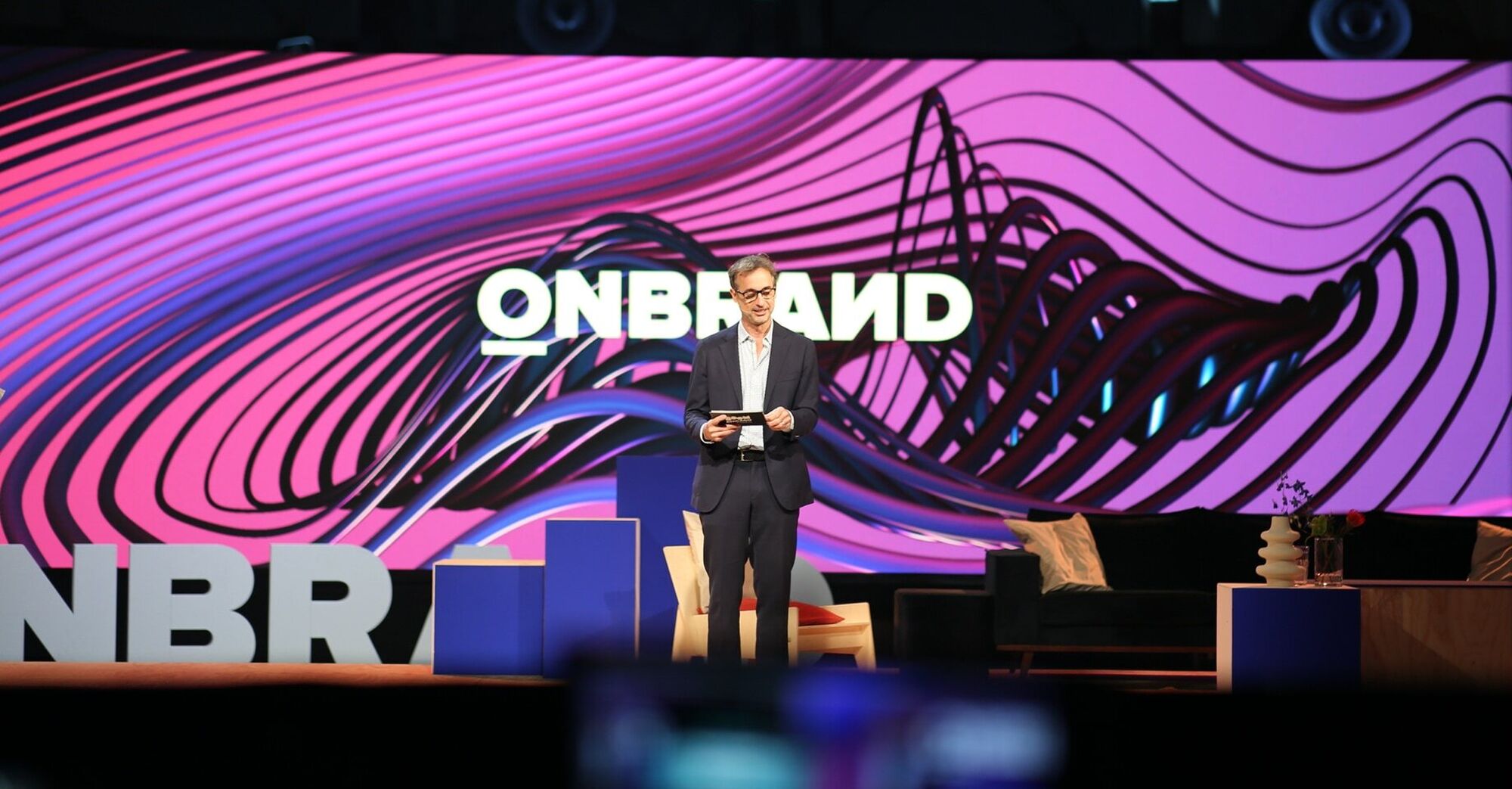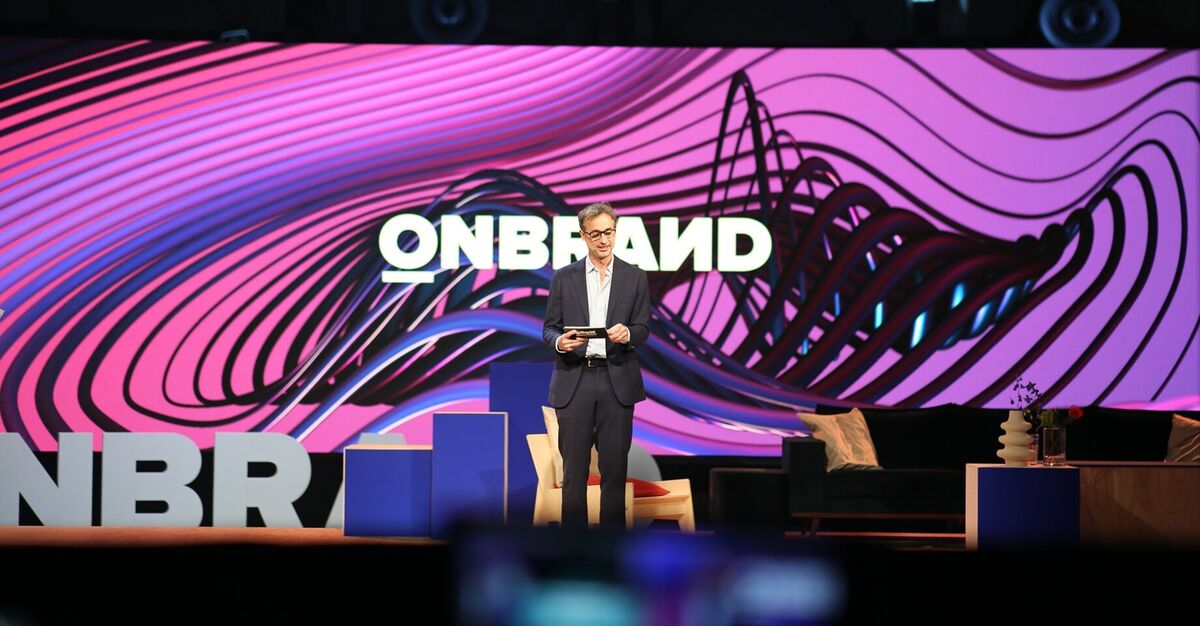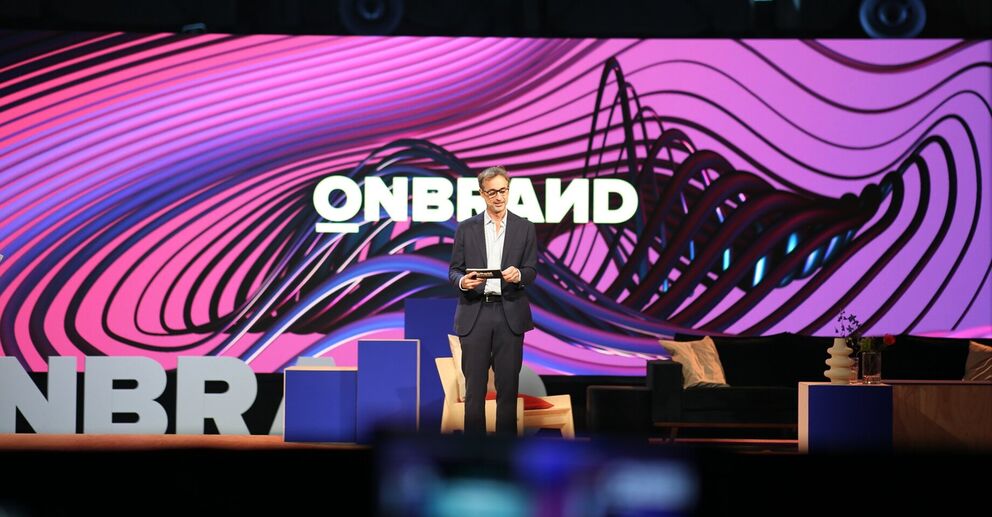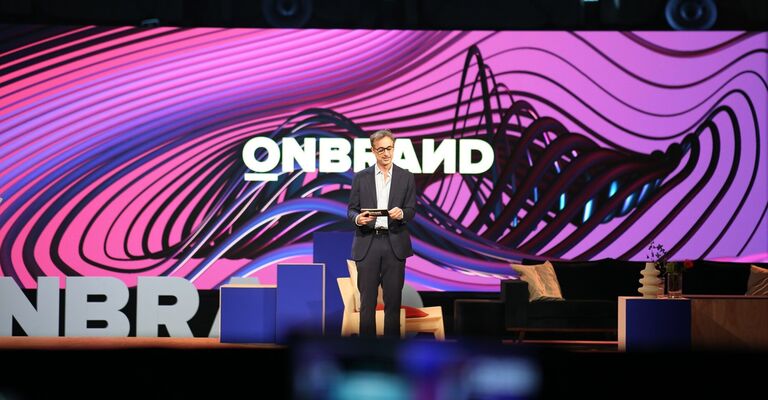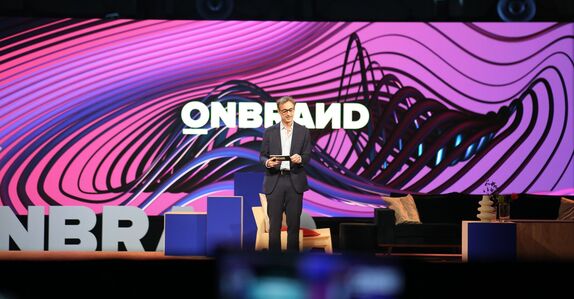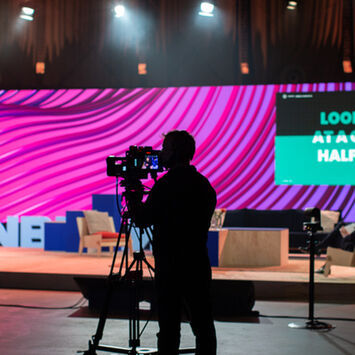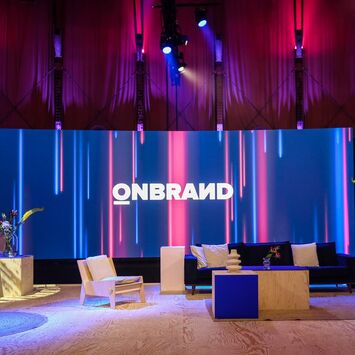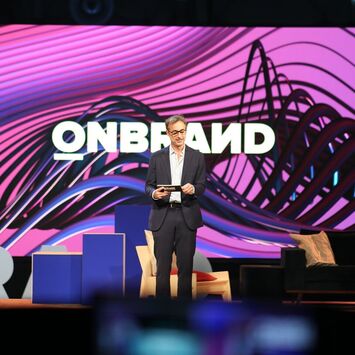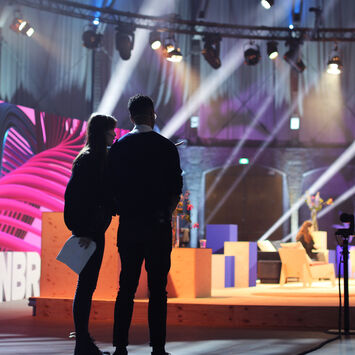Let's face it, 2020 was something else! With the global pandemic reshaping every aspect of life and disrupting everything we used to know, it's no surprise that even Europe's leading branding conference was going to get a virtual makeover.
The shift from OnBrand to Studio OnBrand wasn't an easy one. It obviously required careful consideration and detailed planning to keep speakers and attendees safe while delivering the same OnBrand experience they've come to expect. One lesson to be drawn from our first-ever virtual event is that the standards for this kind of conferences are yet to be set, and we are (oh so) proud to have nudged the dial somewhat on setting exciting new benchmarks.
With live and remote talks from inspirational speakers the likes of Zach Pentel, Alain Sylvain, and Laura Visco—among many others—Studio OnBrand sure exceeded expectations this year. So if you didn’t join us on the day from the comfort of your home office, let us walk you through the conversations that have helped us understand, analyze, and predict how 2020 will reshape branding, marketing, and design.
Choosing optimism
Laura Visco from 72andsunny has no doubt about it: the pandemic is an opportunity! An opportunity for us as communicators to use our tools, talents, and ability to tell stories to reshape the world we live in and "persuade people that there will be a silver lining".
In her insightful talk, she explains how times of crisis have always driven change. They force us to reconsider who we are and what we value while driving innovation and social change. 2020 is an opportunity; an opportunity to redefine what work, parenthood, civil rights, female leadership, and self-worth are going to look like in the new normal.
Only by choosing to look at the glass half-full can we write new narratives that will give people hope. Listen to Laura as she explains how at Studio OnBrand.
Love in the time of technology
Has technology really turned us into eye contact-averting shut-ins, unable to communicate as we've done for millennia? What are the long-lasting changes that technology and social media have brought about?
Sensible people bite their tongues before asking these questions if they want to avoid heated arguments or the scornful looks of Gen Z's around them. But in the midst of a pandemic, as we are all forced to replace real life with virtual life, these questions have never felt more relevant.
This is the greatest period of social change since the 1960s. The pandemic is part of the reason, but the real catalyst is the disruptive power of technology.
Alex Bennet-Grant
We Are Pi
Many will agree that the generation gap is widening in the age of relationships 2.0; while most have no remorse when they admit that there is still a remarkable stigma attached to digital life. We are Pi's Alex Bennet-Grant has no doubt about it: virtual relationships are real and here to stay. Watch (or rewatch) his talk to discover what's good and bad about this—we'll give you a hint; it's not all that bad ;)
Rediscovering creativity
Have we, as marketers, allowed ourselves to lose touch with creativity for the last 25 years? Have we really traded that creative spark for an endless flow of raw data? Bynder's very own Andrew Hally discussed on our virtual stage how marketing personalization has often alienated creatives worldwide and relegated them to a lifetime of menial tasks that require anything but their creativity.
The symptoms are all around us, the relentless pace of modern marketing means there is less time for original brand concepts and storytelling. The pressure to meet the exploding demand for repetitive, hardly creative assets has created a downpour of digital sameness that has impacted our customers' experience and their perception of brands.
The creative remains the driving force behind digital campaigns. Creatives need to be given the opportunity to be creative if we are to reshape personalization and the future of digital campaigns.
Andrew Hally
Bynder
Creative automation can help creatives regain control of their roles and put brand storytelling at the center of every company's marketing efforts. Listen to Andrew explain how the unsustainable nature of marketing personalization is giving us the chance to regard creativity again as the biggest contributor to marketing results.
The role of brand activism
2020 is going down in history as the year of the pandemic, but this would be an understatement. From civil rights movements like BLM to the most controversial elections in American modern history and the political power shift across Europe, 2020 won't be easily forgotten. The drive towards change and the resistance to change have polarized public opinion this year. So, how can the power of narratives and brand activism drive meaningful change in our society?
To drive change, brands must keep a check on power dynamics while considering their own legitimacy to speak out on causes they want to support.
Isabel Crabtree-Condor
Oxfam
Storytelling creates resonance around products and ideas. At times of social unrest, storytelling is the force able to either spread fear or mobilize people and help them focus on hope. Brands can choose their narratives and use them to keep ideas about what is possible in place, create opinions, and offer inspiration to do things differently.
Make sure you have a listen at our panel discussion around what brands have been up to this year to shape public opinion, what they have done well, and what they should have done differently.
The misconceived nature of originality
Long time OnBrand regular Alain Sylvain joined us at Studio OnBrand remotely this year to discuss what he termed "the myth of originality". In his powerful talk, he posed the important question of whether originality still exists. The answer? Well, it probably never existed to begin with.
The pursuit of originality is woven into ego. But, creating something for the first time… Is that even possible?
Alain Sylvain
Sylvain Labs
Alain skillfully takes us on a journey through the history of creativity and originality. By tapping into art, architecture, design, and music, he shows us how the great innovations that exceptional creative minds have gifted us with were never original at all. Each was, in fact, the evolution of everything that had led to that moment. By replacing the concept of originality with the (paradoxically) very original concept of compound creativity, Alain shares with us the four steps brands, as well as individuals, must take to conquer the fear of being unoriginal: Listen to his talk if you too want to learn how to stop stalking originality and start compounding creativity.
Tuning in to our consumers' emotions
We know this by now: everything has changed! The way we work, the way we live, the way we relate with one another, even what we pay attention to and the way we listen to music. Spotify's Zach Pentel has been monitoring these changes very closely over the last 9 months to try and understand something extremely important: "What is our new job as brand marketers and how do we create value in this new attention economy?"
Armed with an endless stream of data on how his users listen to music, he realized he had an incredible ability: he could track the collective emotional states of millions of listeners. So what to do with this knowledge? How can we as brands make sure that we are respecting and responding to these changes without crushing our customers' ability to follow us?
It is important to demonstrate through our actions that we respond to the collective emotional states of our customers
Zach Pentel
Spotify
Listen to Zach recount his experience trying to learn how culture and behavior are changing to find out just how important it is for brands to find a new place in it.
